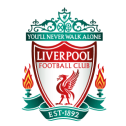And now, that the team is in the World Series, Cubs fever has come to the Caribbean in a big way.
Why the Cubs—and why Belize? Like a lot
of stories from this part of the world, it began with pirates. In this
case, however, the outlaws were local TV impresarios, not swashbuckling
Johnny Depp look-alikes. In the early ‘80s, there were no television
stations in Belize, the only country in Central America whose official
language is English. (Anyone with a set would use it to watch VHS
tapes.) In 1981, however, Belize City business couple Arthur and Marie
Hoare began transmitting the famous Chicago television channel WGN-TV
via satellite, bringing programming to Belize. Channel 9, the Hoares'
bootlegged Belize affiliate of WGN, brought Cubs and Bulls games into
living rooms and bars throughout the country, sparking an interest in
Chicago sports that has continued—with varying levels of enthusiasm—to
this day.
"As [WGN's] signal was relayed into
Belize City by the Hoares, 'world and country' were glued to their
television sets to see the mighty Cubs win or lose (mostly lose)," remembered politician Michael Finnegan in a 2013 article in the Belizean paper Amandala.The country's tiny size may have kept American television executives at bay. In a 1989 Washington Post dispatch from Wrigley - South, reporter William Branigin explained that "U.S. broadcasters consider the Belize market so small that trying to stop the operations would not be worth the trouble."
Most of the fans watching the Cubs in
Belize today are Gen-Xers who grew up watching the team, says Jerry
Martinez, a 36-year-old banker from Santa Elena, a city in the western
part of the country. If the Cubs can lock up the World Series, Martinez
thinks the romance may be rekindled. There are still diehard fans in the
country, he says, but "people here usually ride with winners,"
especially younger Belizeans.
However the season turns out, Martinez is
determined to make his son a Cubs fan. "I grew up a Cubs fan and will
die a Cubs fan," he says. "We're the lovable losers that introduced
Belize to baseball."





















